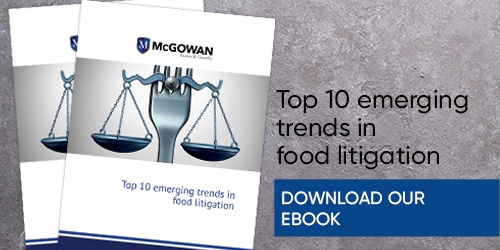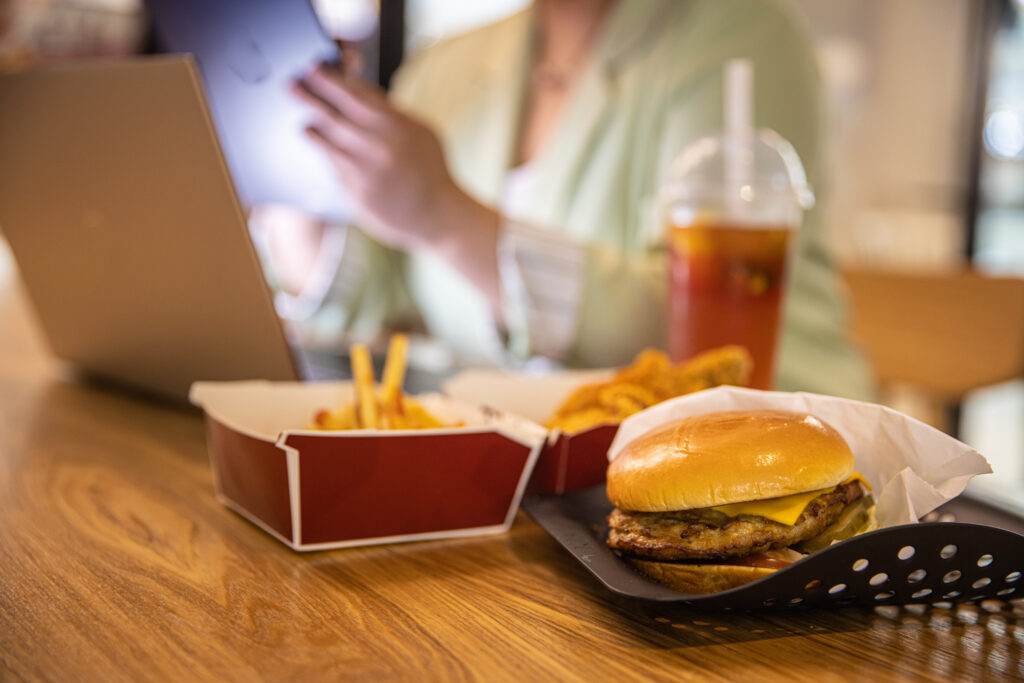There has been a dramatic increase in food marketing class actions in recent years, rising from 20 in 2008 to 325 cases in 2021. Consumers have never been as informed about the products they purchase nor as involved in how they were made. Additionally, food manufacturing and distribution companies are more at risk of litigation today than ever due to the widespread availability of information.
As a result, class action attorneys are suing companies across the U.S., often resulting in financially crippling settlements. Now is the time for companies to examine whether they are at risk of emerging litigation trends and how they can best protect themselves.
Food Class Action Lawsuits: The Current Environment
A review by the law firm Perkins Coie revealed 179 suits in 2019, 221 cases in 2020, and 325 class action lawsuits in 2021. Tracking the increase of food class action lawsuits paints a clear picture for companies: litigation is on the rise.
With companies increasingly at risk of lawsuits from a variety of sources, it’s crucial to track recent trends in litigation, including but not limited to the following:
- Mislabeling and Misbranding Claims: Where lawsuits are brought against companies that fail to label their products with allergen warnings properly.
- Cannabis-Related Claims: Cannabis is still illegal at the federal level, leading to complexity for companies producing edibles with different requirements across state lines. Requirements for dosage, labeling, communication of the effects of cannabis consumption, and more can all expose companies to legal action.
- False Advertising Claims: Where lawsuits allege products are presented as healthier than they actually are or contain ingredients that aren’t actually present.
- Environmentally Friendly or Ethical Sourcing Claims: While food manufacturing companies are eager to display their environmentally friendly or ethical sourcing practices to consumers, regulators, competitors, and class action attorneys will use eco-friendly claims as a basis for lawsuits.
- Foodborne Illness Claims: Where consumers prove that food has made them sick due to the presence of diseases such as E. coli or listeria.
- GMO and Organic Claims: The term organic is one of the most regulated labels in food and beverages. Adhering to regulations is critical for companies using this label for their products.
- Flavoring and Ingredients Claims: Where lawsuits claim certain flavorings and ingredients cause harm to consumers.

Consumers are looking for products that are good for them and the environment and are honest about what they contain. Supported by the free flow of information across the internet that brings consumers together, class action lawsuits are sure to follow. These can be extremely costly and potentially cripple companies, such as in the case of Blue Bell Ice Cream in 2015. The ice cream company was sued for producing contaminated food and mislabeling products, paying $17.25 million in criminal penalties.
Blue Bell Ice Cream is not alone, with companies as large as McDonald’s and Wendy’s facing class action lawsuits in recent years. Companies must look at how they protect themselves against food class action lawsuits.
Also read: Food Labeling Risks: What Food Processors Need to Know
What Can Companies Do to Avoid Food Class Action Lawsuits?
In essence, food manufacturing and distribution companies should adhere to the adage that honesty is the best policy, combined with a deep understanding of regulatory requirements.
Companies should review government regulations and information, such as:
- The Food Safety Modernization Act (FSMA), which aims to prevent foodborne illnesses.
- The U.S. Department of Agriculture (USDA) National Organic Program (NOP), which regulates the ‘organic’ label.
- The Federal Trade Commission for regulation changes, to stay on top of false advertising requirements.
- The Centre for Disease Control (CDC) for guidance and information on which products are safe to consume for the public.
Apart from ensuring products match government regulations in different states and countries, companies also should be as transparent as possible. For instance, food labels must provide detailed information on the contents to prevent allergic reactions in consumers. Additionally, the country of origin should be truthful, as many customers will base purchases on this information, such as champagne. If a disease outbreak occurs, companies should immediately inform the public and take any possible steps to reduce the spread.
Companies must keep their consumers educated about products and avoid false advertising. Even with these actions, food and beverage companies remain vulnerable to litigation.
Download this Ebook for a detailed look at litigation against food companies.
How Can Insurance Help?
Preventative measures are critical to protect against the significant rise in class action lawsuits levied against them. New trends are emerging every year, and companies should use every tool available to them to defend themselves. A major part of protecting against food class action lawsuits related to food is to invest in robust liability insurance.
The right insurance will help cover legal fees, protect from financial damages that could cripple the business, provide access to legal expertise to help defend against lawsuits, and even provide risk management guidance. When food and beverage companies work with insurance providers they can trust, they dramatically reduce the harmful effects of potential litigation.
McGowan Excess & Casualty (MEC) provides comprehensive product solutions for a broad range of commercial risks. Learn more about our core commercial capabilities, including Umbrella & Excess Liability Pen Markets, Primary Liability Pen Markets, and Specialized Insurance Brokerage.
Contact us today to take the first step toward protecting your business.


